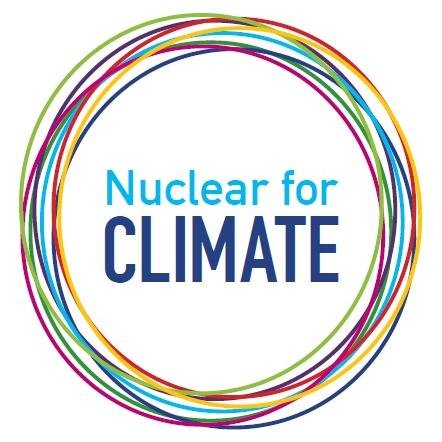I just read an article in Forbes magazine titled "Climate Scientists Get Respect, So Why Don't Nuclear Scientists?" The author, James Conca, said that in discussions of climate change, it is often mentioned that ninety seven percent of climate scientists agree that climate change is real and we should do something about it. He goes on to say that one hundred percent of geologists agree that biological evolutions has been acting on the Earth for four billion years and that ninety nine percent of physicians agree that everyone should be vaccinated. All of this was a build up to comments about the absence of nuclear scientists in the main-stream media when nuclear power is being debated. He said that you could not understand the reality of nuclear science without them.
He said, "As a research scientist, a geologist and a nuclear scientist, this is really annoying. And sad. Nuclear is such a complicated scientific discipline that it is insane not to tap this group of scientists if you want to know the reality. Because without them, you will not get any real understanding of this subject." He goes on to say that nuclear scientists are often unfairly accused of selling out to the nuclear industry but dismisses that charge. He suggests that part of the reason for lack of respect and media coverage of nuclear scientists is that there is no "constituency" for nuclear power like Texas is for oil, West Virginia is for coal and Pennsylvania is for natural gas. He concluded by pointing out that the global media failed to cover the call for nuclear power by a group international scientific societies in the recent "Nuclear For Climate Declaration".
I have great respect for nuclear scientists and am always ready to listen to their statements in the realm of nuclear science. However, nuclear power involves many issues that are outside of academic understanding of nuclear science. If a nuclear scientist says that a particular radioactive nucleus fissions into a particular set of daughter particles, I will accept what he says. On the other hand, when a nuclear scientists says that nuclear power is the best solution to the problem of anthropogenic climate change, he is way out of his area of expertise. There are social issues, political issues, economic issues and environmental issues that he may not be an expert in. All of these weight heavily on any consideration and debate on the expansion of nuclear power for combating climate change. Perhaps the reason that more nuclear scientists are not seen in the debates is because the debates are not about the facts of nuclear science.
I reject his contention that there is no constituency for nuclear power. There are many leaders in developing nations trying to lift their citizens out of poverty who see nuclear power as their best chance for economic expansion. There are major nations with nuclear technology who see it as an excellent source of export revenue and are promoting it vigorously. And there are very wealthy corporations which stand to make billions and billions of dollars from nuclear plant construction and are spending millions to promote it. There are also many people concerned about climate change who believe that nuclear power is the answer.
The bottom line in my rejection of nuclear power is this. I have no doubt that nuclear scientists and nuclear engineers are capable of designing nuclear power reactors that are safe and reliable. The problem is that you have to be able to rely on governments to regulate reactor construction and operation. And you have to be able to depend on corporations to follow regulations in the construction and operation of power reactors.
The terrible nuclear disaster at Fukushima could have been prevented if the Japanese government has regulated properly and TEPCO had acted properly in the operation of the plant. But they did not. The history of government regulation of nuclear power and corporations construction and operation of nuclear power plants is littered with terrible examples of corruption, greed, and incompetence. The problem with nuclear power is not nuclear science, the problem is human institutions.
